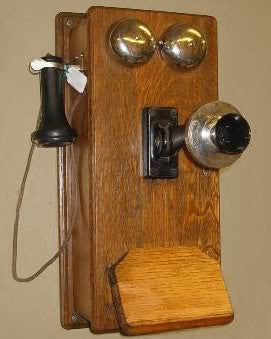5. The Neighbors
The Wheelers lived up the next canyon to the south, a little over a mile away. They were a musical family; each of the children and parents played musical instruments. I don't remember ever hearing them play because they had grown up and left the valley while I was still a little boy, but my parents remarked about how talented they were as a family. I met Carl Jr. briefly when my dad took me to his place up by Austin to buy a couple of Southdown show lambs for the FFA stock show. Elbert, the youngest son stayed on the ranch his whole life and never married. He walked with a very noticeable limp caused by polio when he was young and had to help his bad leg by lifting it with his hand as he walked.
When I was in my early teens I got the idea that I wanted to learn to play the fiddle, so as that was Elbert's instrument, he began to teach me. I would go over to his house when I could, and we would sit in front of the fire in the big rock fireplace, and he would would work with me. Though I don’t think he saw much potential in my ability he was very patient. At this time both of his parents had died, and with his siblings having moved away he was alone. Often when I went to his house he had families from Mexico living with him. Sometimes there were very little children roaming around the house. One evening while I was working at my fiddle a little pantsless toddler came in and looked at me with a big smile and pied on the floor. Elbert, in his perfect Spanish called the boy’s mom and she came in and cleaned up the puddle and took the child.
Because Elbert was crippled and could not do the missionary work that Mormons normally do he found work for Mexican workers coming through the area looking for work. He became so well known for this that when these workers returned to their country they spread the word, “look up Senor Wheeler, and he will find work for you.” This was a service also to local ranchers looking to find temporary ranch workers. But to Elbert it was a ministry; he had a heart for these lonely pilgrims wandering in the promise land. These men endured great hardship looking for work to feed their poor families south of the border.
Elbert drove the school bus route from Medina to the head of the West prong. The entrance to his ranch came through ours for a short distance and then followed the creek into his place. Because he lived at the end of the route, after the school run he would keep the bus at home. In the morning he would drive back to school picking up kids along the way. When he arrived at the school he traded the bus for his pickup.
When my folks came to the ranch there was no phone service but soon they got an old crank type phone. Some time later regular phones came to the West prong and we got one. It was a party line and often during a conversation you could hear someone pick up to see if the line was busy to make a call, or to listen in on your conversation. When the new phones were put in the Wheelers got one of the old crank phones, and with the wire that had been taken down and discarded, ran a line to our house. This phone could only be used between our houses and we used the old cranker phone to call or receive calls from the Wheelers.
Sometimes we would get outside calls for them on our regular phone and my dad or mom would take down the number and then call them up on the cranker phone to let them know they had received a call. A short time later Elbert would come driving over in the school bus to return the call. At the end of the call the operator gave him the charges, and he would pay my dad cash and go home.
Photo: Old cranker phone like the one we had but my mother painted ours; it was destroyed when my workshop burned in the early eighties.

